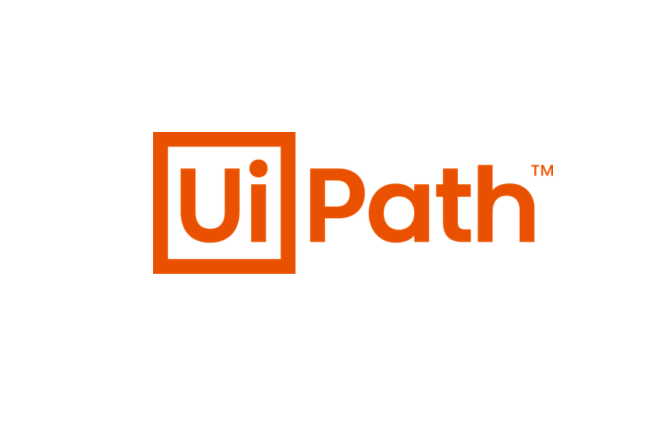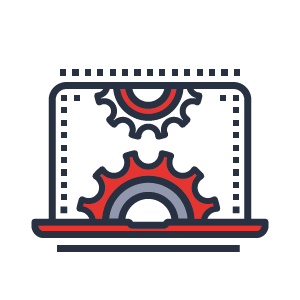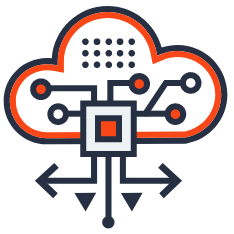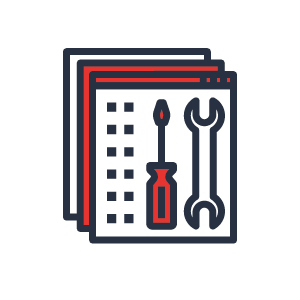The COVID-19 pandemic has restricted operations and stopped many business processes in their tracks. Now that people are struggling to access paper records and pass files from desk to desk, manual methods are defunct. Even rudimentary digital approaches like sharing Excel spreadsheets over email are a hindrance – because tracking progress, finding information and monitoring compliance is an uphill battle.
Any companies that depend on these outdated operational models need to rethink the way they work and find digital solutions for a wide range of activities. These may range from managing PPE resources and health and safety inspections, to onboarding customers and processing accounts receivable.
During a crisis, software that supports rapid and agile process automation can help to get productivity back on track – quickly and in a sustainable manner.
Companies want to automate but progress has been slow
According to Forrester’s Q1 2020 Global Digital Process Automation Survey, over 70% of organisations still engage in paper-based, manually managed tasks.
These are activities that lend themselves well to automation, with benefits that range from improved efficiency and data accessibility to a reduction in human error and risk. So why have these companies not modernised their approaches?
The same study found that more than 50% of organisations already have plans in place for broad process automation, but progress has been slow.
Automation plans must now be prioritised
Out of the blue, the COVID-19 crisis has shuffled business priorities. Companies now need to give their digitisation plans precedence; and find the appropriate technologies to re-design their processes around remote teams, virtual meetings and contactless customer experiences.
Requirements include:
- Automating manual tasks
- Transforming paper forms into digital forms that work on any device
- Building automated workflows to orchestrate tasks and data between process participants, regardless of where they are based
- Access to process metrics and digital audit trails
While the benefits are clear, the scale of automation required to power new ways of working can feel daunting. Outlined below are some recommendations.
1. Choose your technology wisely
The software you choose needs to support the rapid development of solutions that automate manual tasks, make forms and documents digital, support seamless data sharing between systems, and manage the flow of work virtually.
The types of platforms that can achieve these objectives include low-code application development systems, digital process automation (DPA) solutions and robotic process automation (RPA) software. All of these technologies are specifically designed to enable fast, cost-effective process automation.
2. Ramp up automation efforts
Encouragingly, the Forrester survey found that these technologies already have “significant uptake” in the market. However, organisations are not yet harnessing the full potential of the process automation solutions that they have in place.
Going forward, this needs to change; and it seems as if automation initiatives are set to gain momentum. More than a quarter (28%) now plan to expand the usage of their RPA platforms, 21% aim to stretch the benefits of their low-code application development systems, and 17% are scaling up their DPA solutions.
3. Take an iterative approach
It’s essential to conduct a business analysis and discovery drive to identify the manual processes that are most suited to automation. In the current climate, it makes sense to prioritise the manual processes that are tripping up critical business operations. Once you have built automation solutions for these workloads, you can scale your digital transformation efforts from there.
4. Give business experts access
Given the pace at which digital process transformation needs to happen today, this is not a project for the IT function alone. Speedy time to market can only be achieved if the technology platform facilitates collaboration between business and technology experts. The relevant business units need to be involved right from the beginning, because they have an intimate knowledge of the data and activities that must be digitised. It’s therefore ideal to choose a platform that is designed for both professional developers and business users.
5. Get help if you need it
Partnering with a process automation consultancy can help you to select the best technology for your needs and maximise the value of your automation solution. Velocity IT has extensive experience in this field. We help companies with every aspect of the process automation journey, covering business analysis and discovery, solution formulation and design, development and configuration, stakeholder feedback and review, rollout, go-live and support.
Our team has deep working knowledge of multiple technologies – including low-code, DPA and RPA. This allows us to deliver an agile and easily extendible framework for ongoing digital transformation, starting simple and adding more advanced capabilities as needed.
Why Velocity IT?
With decades of experience in the digital transformation field, we are widely respected for our high working standards, extensive technology knowledge and agile project delivery process. As an expert digital partner with specialist knowledge of automation and advanced technologies, we can help you move your digital capabilities to the next level – as a technology consultant or as an extension of your IT team.







